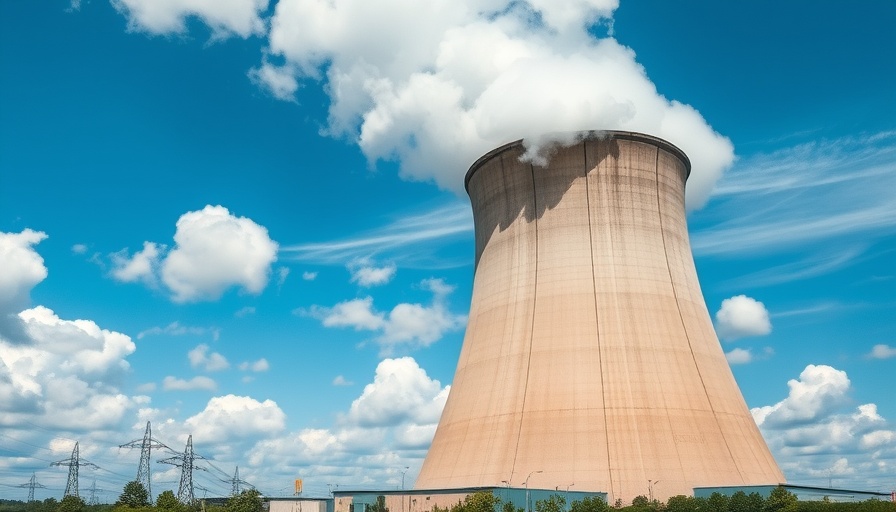
A Bright Future for Nuclear Fission: Big Tech's New Power Source
As demand for electricity soars, driven by the rise of artificial intelligence and data-driven services, major technology companies are seeking innovative solutions to secure their energy needs. This quest has led to a renewed interest in nuclear fission, a long-standing but often controversial power source, particularly appealing due to its capacity to provide stable, round-the-clock energy—perfect for data centers that require uninterrupted power.
The Appeal of Next-Gen Nuclear Technology
Nuclear fission has seen a resurgence in popularity after years of stagnation marked by plant closures and public skepticism. Unlike fusion, which remains mostly theoretical, fission technology is already in use and evolving. Recent advancements in reactor designs—especially in small modular reactors (SMRs)—promise to pave the way for safer, more efficient power generation. These modern reactors function on a smaller scale and can be mass-produced, potentially reducing costs and construction times compared to traditional large reactors.
Leading the Charge: Big Tech's Investment in Fission Startups
Amazon, Google, Meta, and Microsoft are among the technology giants investing in next-gen fission technologies. Their interest stems not only from energy needs but also from the environmental benefits associated with nuclear power, a low-carbon option compared to fossil fuels. For instance, Kairos Power, a leading startup in this domain, has received substantial backing from Google with an agreement to provide electricity to the tech giant's operations by 2035. With innovative designs that include molten salt cooling systems, Kairos aims to enhance safety and efficiency, addressing concerns that have historically plagued older nuclear technology.
Investment Trends in the Energy Sector
The trend towards nuclear fission reflects a broader strategy of tech companies, which are increasingly focused on renewable and reliable energy sources. As they develop and integrate AI technologies, the synergy between these advancements and sustainable energy solutions becomes crucial. Venture capital is following suit, with government incentives also playing a significant role in stimulating growth in this sector. The recent approval for Kairos Power to begin constructing two reactors in Tennessee marks a critical milestone in the intersection of tech innovation and energy management.
Risks and Challenges Ahead
Despite the optimism surrounding fission, challenges remain. Regulatory hurdles, public perception, and the complexities of operational safety still loom large. Additionally, no SMR has been successfully constructed in the U.S. to date, raising questions about the practicality of these ambitious plans. How successfully these startups can navigate these challenges remains to be seen, but their integration of innovative technology indicates a forward-thinking approach that aligns with future tech industries.
Conclusion: The Future of AI and Nuclear Energy
Nuclear fission represents a paradigm shift in how technology companies are addressing their energy needs. As these firms pivot towards sustainable solutions while integrating AI technology trends and energy innovations, the future looks promising. This exploration of nuclear advancements not only signifies a commitment to greener energy but also represents the tech industry's role in addressing climate change challenges.
 Add Row
Add Row  Add
Add 




 Add Row
Add Row  Add
Add 



Write A Comment